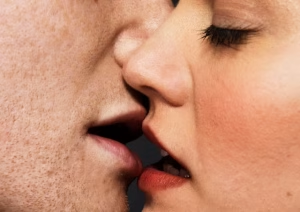
Assuming that you and your life partner appear to coincide in a condition of consistent clash, with a conjugal relationship that is sinking quicker than an overturned boat, your specialist could some time or another join a proper conclusion to your homegrown disagreement. The American Psychiatric Association (APA), the National Institute of Mental Health, and different organizations have raised the likelihood that another analysis – – called “social issues” – – could some time or another portray your spousal quarreling.
The proposed new determination characterizes a social issue as “steady and excruciating examples of sentiments, ways of behaving, and discernments” among at least two individuals in a significant individual relationship, such a couple, or a parent and youngsters.
As per specialist Darrel Regier, MD, a few specialists and different specialists engaged with couples and conjugal guiding have suggested that the new finding be considered for conceivable joining into the expert guidebook for psychological maladjustments – – called the Indicative and Factual Manual of Mental Disorders(DSM).
We are attempting to decide whether there is sufficient proof and backing for the finding, says Regier, head of the APA’s division of examination. “This moment, simply a ‘condition’ is a justification for clinical contact, rather than a ‘jumble’ characterized by unequivocal measures.”
A posting in the DSM would give emotional wellness experts distinct rules for diagnosing a “social confusion,” which would permit specialists and different specialists to obviously distinguish cases requiring treatment, says therapist Michael First, MD. By remembering the finding for the following DSM, and officially naming it as a “jumble,” it would “fundamentally give it more conspicuousness,” says First, supervisor of the ongoing version of the DSM.
The interest in seeking after additional exploration and concentrating on “social problems” isn’t bound exclusively to specialists. “Numerous family clinicians have been chipping away at this for quite a long time, and have been posing the case that specific sorts of family connections, portrayed by specific examples of communications, will generally be disastrous of the emotional well-being of people inside the family,” says Ronald Levant, EdD, previous leader of the division of family brain research of the American Mental Affiliation.
Changing the Concentration
The DSM has been utilized by experts for quite some time, and it has gone through a few corrections. The following release, DSM-V, isn’t supposed to be distributed until 2010, and solely after input about its items is gathered from many psychological well-being specialists. As of now, in any case, the conceivable consideration of “social problems” in the manual is starting to work up conversation, and not just on the grounds that it would name disturbed connections as neurotic. The new finding would likewise address a reasonable change in perspective in the manner that psychological maladjustments are seen. Interestingly, a mental problem would be characterized as affecting at least two individuals, as opposed to only one.
“Today, the whole framework is based upon the model that the brokenness is in the individual,” says First. “At the point when a doctor finishes up clinical records, the person in question does as such for an individual, and cases are submitted for a person. So in that sense, the reception of ‘social issues’ future an alternate thought. It would move the locus of the issue from the person to the relationship.”
Obviously, specialists have consistently considered the elements inside a nuclear family, instead of focusing exclusively on one individual. Yet, assuming that the new finding is ultimately taken on, it would officially move the concentration to at least two individuals – – and maybe represent a few new issues simultaneously.
For instance, Regier depicts the accompanying situation. “If you somehow managed to put the obligation regarding a broken relationship on the two players fairly similarly, and assuming there’s a mate included who’s being battered, there is the gamble that in some way you’re faulting the casualty for contributing here and there to their own maltreatment,” says Regier.
Levant, senior member and teacher at the Middle for Mental Examinations at Nova Southeastern College in Post Lauderdale, Fla., stresses that “aggressive behavior at home is a crook go about as well as a feature of a relationship. I believe it’s by and large concurred that one needs to distinguish the culprit and try not to allocate fault to the person in question.”
A few defenders of the new determination bring up that once the presence of a “social confusion” is recognized, it will turn out to be obvious to the hitched couple that their relationship should be fixed, as opposed to one life partner or the other inclination enduring an onslaught.
Arriving at Agreement
A large number of the better purposes of characterizing “social issues” would need to be explained as the exploration in this space unfurls. For instance, since even the best connections have highs and lows, how would you isolate a typical uneven relationship from a “jumble”? “It’s not even evident that this outline is possible,” says First, albeit some psychological well-being experts trust that two or three’s concerns are both persistent as well as difficult, they might go too far and meet the models of a problem.
Arriving at agreement among psychological wellness experts, be that as it may, may not be a sure thing. At the point when DSM-IV was being developed, the analysis of “social problems” was talked about around then, yet the choice was made to return it to the planning phase since there wasn’t sufficient exploration to one or the other help or reject the new determination. Then, as now, there were additionally worries among some emotional wellness experts that the meanings of ailment and illness were essentially being extended excessively far.
In light of issues like these, most specialists are adopting a pensive strategy right now, including the people who might be straightforwardly engaged with setting up the following DSM.
“Choices in regards to changes in the DSM depend on information, and there must be more examination accessible to us when now is the ideal time to settle on a choice,” says First, MD, academic administrator of clinical psychiatry at Columbia College School of Doctors and Specialists in New York City.







